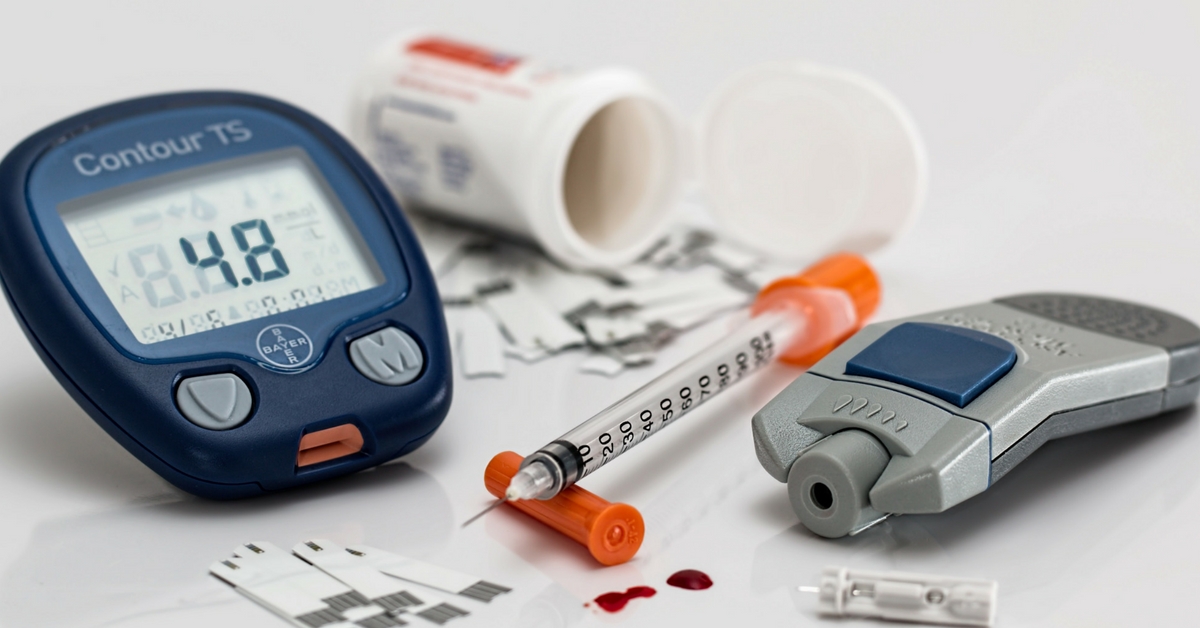TBI Blogs: Do You Think Diabetes or Heart Disease Is A “Genetic Problem”? You Need to Read This!
Everyone needs to understand that our genes are just one factor, one cog in the wheel that takes us hurtling towards the path of lifestyle disease-dom. Kavita Devgan explores the multiple factors that cause lifestyle diseases, and how to overcome them.

Everyone needs to understand that our genes are just one factor, one cog in the wheel that takes us hurtling towards the path of lifestyle disease-dom. Kavita Devgan explores the multiple factors that cause lifestyle diseases, and how to overcome them.
Most of the time, we conveniently blame our genes for any health disorder that affects us. “Oh, both my aunts have diabetes, so I knew I would get it too,” a 35-year-old professional told me just last week. In fact, I hear this – or a variation of it – all the time.
While genetics definitely plays a role and there is no denying that at all, what everyone needs to understand is that our genes are just one factor causing lifestyle diseases. There are multiple other factors, mostly self-inflicted. For example, this 35-year-old was about 15 kilos overweight, and most of the extra weight was very obviously centred around his beer belly. He had a 9-to-9 job, was constantly stressed about work pressures, ate 18 meals out of 21 every week in a restaurant (or ordered takeaway), and the only exercise he got – or believed in – were the 10 steps he took from his main door to the car in the porch, and the reverse every evening. This kind of a lifestyle actually ticks every “not to do” diktat and primes even those without any family history of diabetes to get it sooner or later. “Get ready for high blood pressure and heart disease too, they are round the next corner,” I told him.
“No, no, I have no family history of those,” he said smiling.

The thing is, in his case, and actually for many of our generation, family history doesn’t even matter anymore. Our lifestyles are the main causes for the disorders and the non-communicable diseases (NCDs) we suffer. According to the World Health Organisation (WHO), NCDs kill 38 million people each year. Cardiovascular diseases account for most NCD deaths (around 17.5 million people annually), followed by cancers (8.2 million), respiratory diseases (4 million), and diabetes (1.5 million). In fact, these four groups of diseases account for 82 % of all NCD deaths. All four are rampant, and all of them have their genesis in the kind of lifestyles we live and the kind of food we eat these days.
According to me, there are five common lifestyle red flags we need to think about and tackle.
1. We have simply stopped cooking at home. We use our gas stoves less and less and microwave (to reheat) more and more. This has a serious impact on the kind and quality of food we consume on a daily basis, which ups the danger substantially.
2. Most of us are overweight, and not doing anything about it. That is dangerous as being overweight can increase your risk substantially for certain cancers, in addition to the high changes of diabetes and heart disease.
3. Smoking and drinking (even a drink a day) is extremely common these days, and most people begin these really. This can raise the risk of most disorders (even cancer, by 12 % and 13 % respectively).

We consume additives (via processed foods) freely. A case in point is the recent storm over bread as a potential cause of cancer. A study by the Centre for Science and Environment (CSE) reported that a startling 84 % of bread and bakery samples collected from all over Delhi contained residues of cancer-causing chemical food additives like potassium bromate, potassium iodate, or both. Then in October, a study conducted by Kolkata-based All India Institute of Hygiene and Public Health (under the Health Ministry) found the presence of five toxins in soft drinks packaged in PET (polyethylene terephthalate) bottles.
All of these have serious consequences on our health. There are multiple other devils people are freely consuming out there. For example, researchers have linked thyroid cancer and clinical depression to tartrazine, found freely in sweets, orange drinks, cereals, chips, marmalades, etc. Yet, we fatalistically more or less accept them (some) as part of the food that we eat these days, and happily eat them.

There is almost nil exercise happening. The common recommendation is just 30 minutes of some form of exercise, five days a week. How difficult is it to take out half an hour a day, if this can help keep us safe?
Being this careless is scary. We are literally self-inflicting problems with the messy lifestyles we live, and yet we conveniently blame it on our genes. To make my case, let me end with this. People often blame breast cancer on genes, but the fact is that about 85 % of breast cancers occur in women with no family history of breast cancer. So what is bringing on this and other epidemics? We need to ask ourselves, before it gets too late.
(The writer is a nutritionist, weight management consultant and health writer based in Delhi. She is also the author of Don’t Diet! 50 Habits of Thin People.)
Join the Partnership to Fight Chronic Disease in their mission to control and prevent the growth of non-communicable diseases in India, on their website.
Featured Image Source: Pexels
Like this story? Or have something to share? Write to us: [email protected], or connect with us on Facebook and Twitter.
NEW: Click here to get positive news on WhatsApp!
If you found our stories insightful, informative, or even just enjoyable, we invite you to consider making a voluntary payment to support the work we do at The Better India. Your contribution helps us continue producing quality content that educates, inspires, and drives positive change.
Choose one of the payment options below for your contribution-
By paying for the stories you value, you directly contribute to sustaining our efforts focused on making a difference in the world. Together, let’s ensure that impactful stories continue to be told and shared, enriching lives and communities alike.
Thank you for your support. Here are some frequently asked questions you might find helpful to know why you are contributing?


This story made me
-
97
-
121
-
89
-
167













